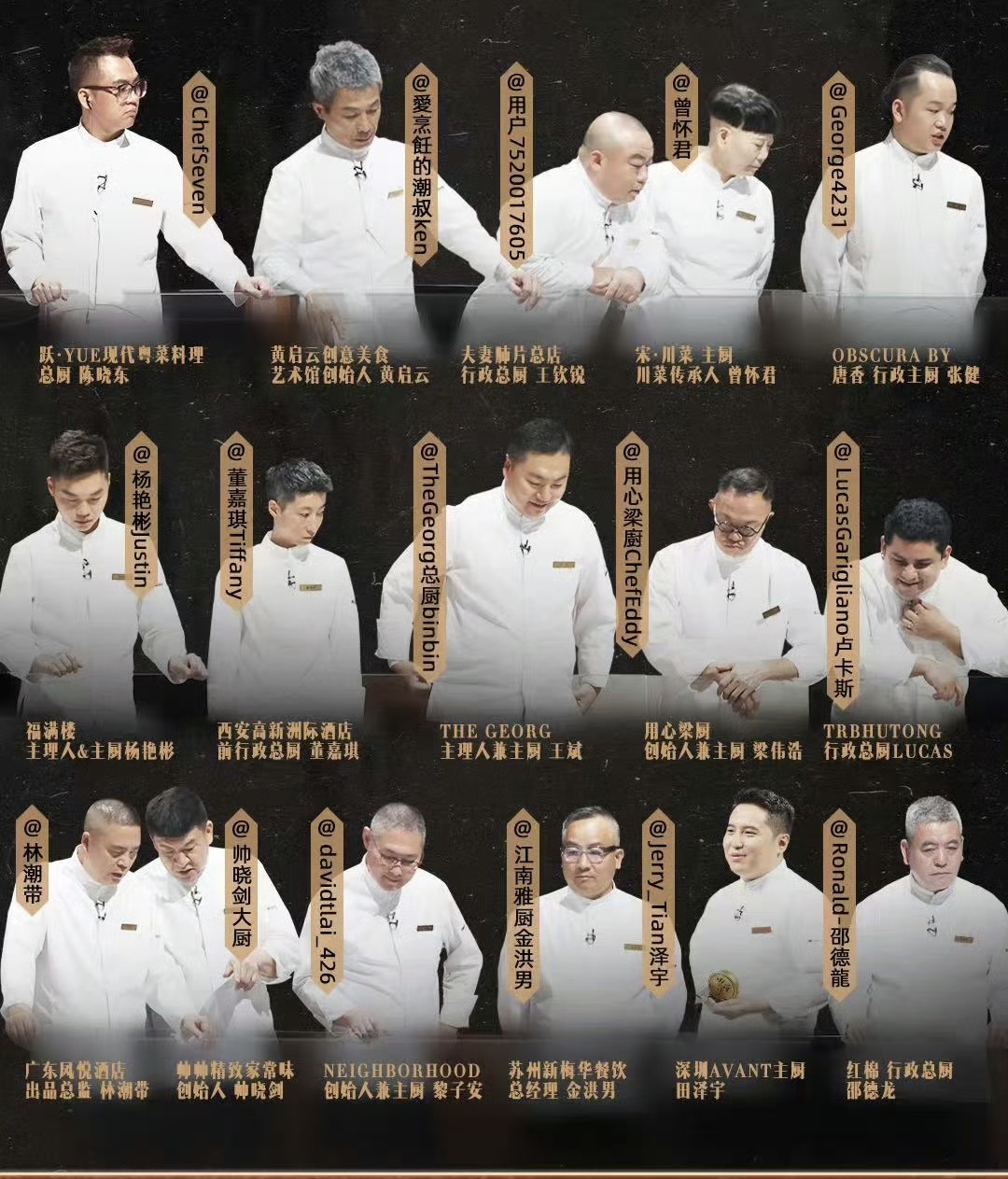
Chen Xiaoqing actually had this day too. He could only stretch his neck to watch and smell the food from afar, but it was not his turn to eat... Li Dan was even more anxiously walking around, shouting, "This is too much, we can only watch!" Next to them, there were sixteen top chefs whispering like spectators, and occasionally they would learn from each other on the second floor. It was really interesting to create a "foodie world" with such painstaking efforts.
Last night I watched an episode of "One Meal Becomes a God". The opening was quite exciting. The competition was inspired by Chinese chess. The stage design must have cost a lot of money. 84 chefs who "know how to make the taste of the people the best" appeared one after another with code names such as "Bald Stove Man", "Old Naughty Boy at the Stove", and "Little Princess of Sauce". These chefs came from all corners of the country and from all schools and sects in the culinary world. They formed the "little chef camp".
Don’t underestimate the “little chefs”. Some of them are the leaders in the local catering industry, some are champions of various international cooking competitions, and some are food bloggers with millions of fans. They all have prominent backgrounds.
Opposite the "little chefs" are the "chef camp" consisting of 16 chefs with superb cooking skills and who are highly respected in the chef industry. According to the "little chefs", they are basically all big names with encyclopedia entries.
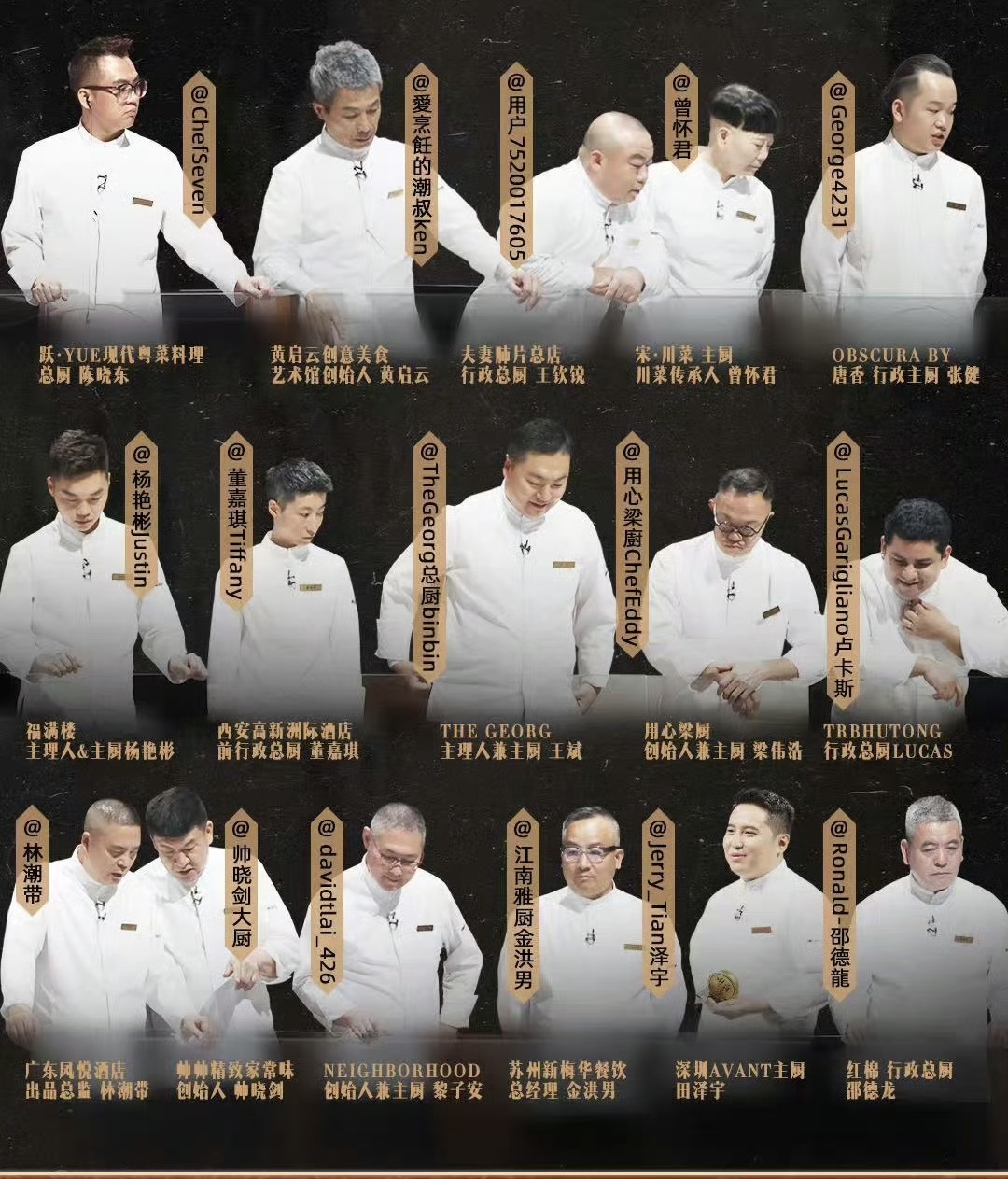
16 chefs with superb cooking skills and highly respected in the chef industry form the "Chef Camp"
The first episode started with a "battle royale" style entry battle, where only 16 of the 84 chefs could enter. This kind of opener of a food competition variety show without politeness or games is a breath of fresh air. After reading the encyclopedia entries one by one, the chefs rushed into the high-end kitchen, put on their aprons, and their hearts were filled with dissatisfaction and resentment, and their professional ability was the focus.
The judging panel includes Nicholas Tse, who has been deeply involved in the culinary industry for many years, Zhang Yong, founder of the New Rong Kee Group, and Vicky Zheng, who holds the highest domestic ranking in the "World's 50 Best Restaurants". The three of them formed a multi-dimensional judging triangle: Nicholas Tse focuses on the "gastronomic worldview" and innovation, Zhang Yong is obsessed with the original taste of ingredients, and Vicky Zheng focuses on the balance of seasoning. This complementary perspective partially alleviates the bias caused by a single standard.
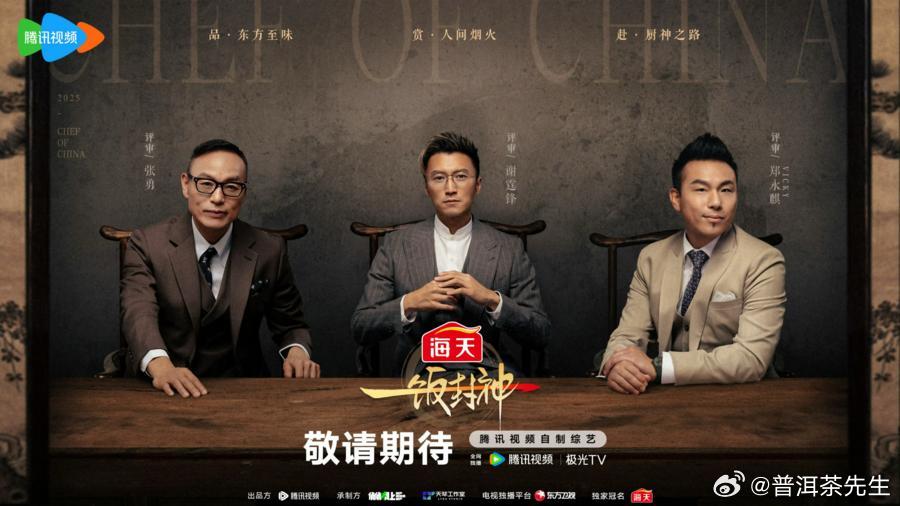
Judges: Zhang Yong, Nicholas Tse, Vicky Cheng
Judging from the first episode alone, the stove of "One Meal to Become a God" still exposed the "discrimination chain" between cuisines in the culinary world: exquisite southern cuisines frequently advance, while the bold northern cuisines collectively fail to adapt. However, there is no need to feel wronged. The inheritance of cuisines must still have an audience. For example, Northeastern cuisine has lost its foundation in terms of inheritance. The three fresh vegetables in the old days were not potatoes, eggplants and green peppers, but tigers, bears and sika deer. It is indeed "very painful" to cook them according to the same method now. In the first national cooking competition held in 1983, Northeastern chef Liu Jingxian won the championship with a dish of orchid bear paw. Who would dare to serve this dish now?
Chen Xiaoqing also feels that it is "a bit difficult" to hold a cooking competition in China. This is because China is so big and the living habits are very different. However, what can leave an impression is the diverse local colors. He said: "In the past, the competitions that I saw were more about rules and hands. We trained repeatedly. This time, it is more about brains. What I added can leave a mark on the audience. At the same time, the taste and smell can be greatly satisfied. It is something that I can remember immediately."
The three judges have one thing in common: they are picky eaters and are extremely picky about dishes. Especially Nicholas Tse, who can accurately point out the taste and defects of each dish, and even observe the preparations in advance to comprehensively evaluate the contestants. The contestants who were eliminated were also convinced. When faced with a contestant using ready-made hot pot seasoning, although he praised the shrimp meat for being fresh and tender, he decisively judged that the contestant was eliminated. It turns out that Virgos can't stand pre-prepared ingredients.
Xue Mingcheng, the "old naughty boy at the kitchen", performed in "One meal makes you a god", which can be called the most dazzling "fireworks legend" in the first episode of the program. The 71-year-old Sichuan chef has made a "lipstick shop" (a shop that is passed down by word of mouth) in the local area with his Sichuan spicy crab. When competing for his specialty dishes at the beginning, he handled every step from handling crabs, preparing ingredients, frying crabs, frying seasonings, to cooking ingredients, and serving on a plate.
This bald spicy crab dish not only has good color, aroma and taste, but also perfectly retains the original flavor of the crab, which made Nicholas Tse praise it highly: "The spicy and fresh aroma of the red oil did not cover the fresh and sweet taste of the crab at all, it was amazing!" Nicholas Tse, the judge, was forced to taste and eat secretly. Nicholas Tse also generously admitted to the camera, "If it wasn't for the competition, I would have eaten the whole plate!"
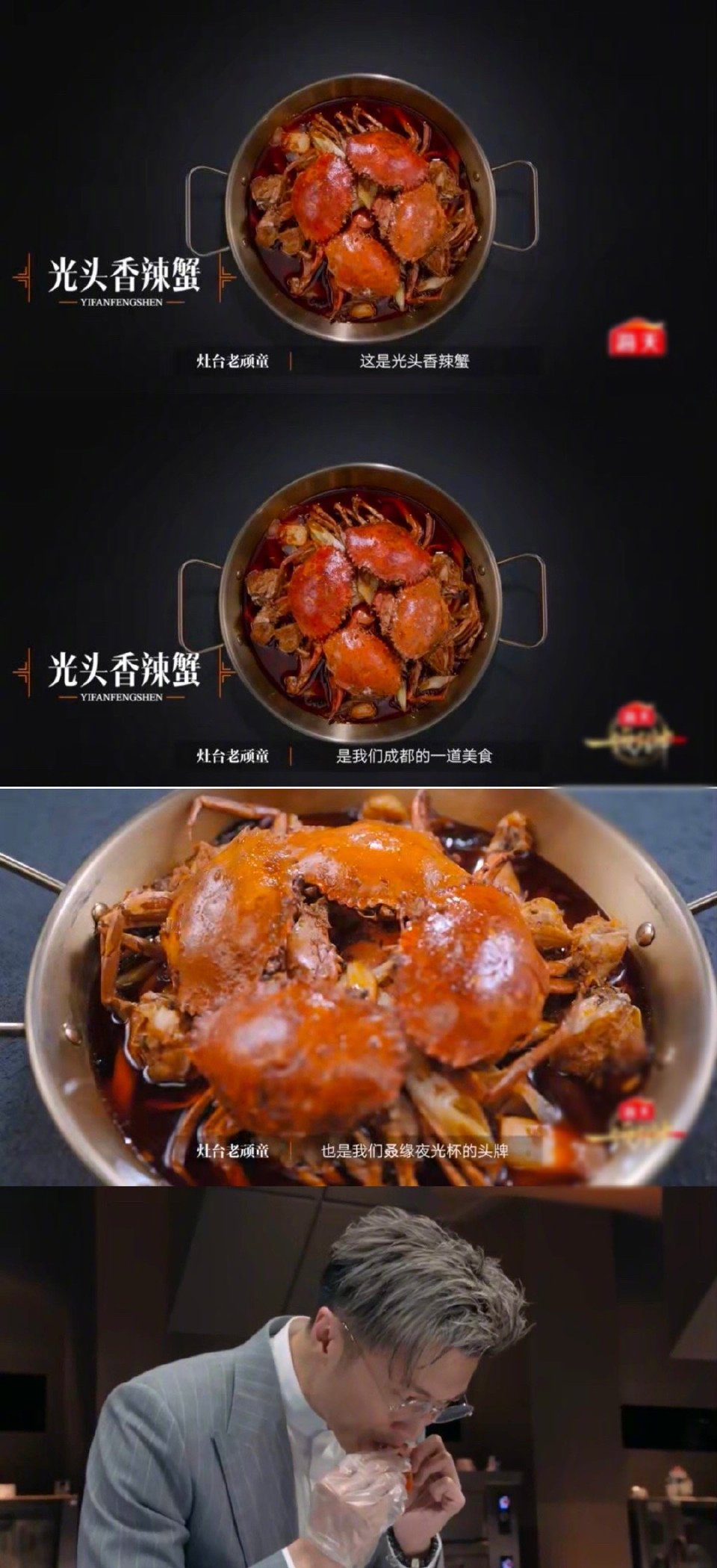
Bald spicy crab conquers judge Nicholas Tse
As a celebrity chef with over 10 million fans on the short video platform, Chef Zhan, also known as "Uncle Seeking True Taste", brought his own special skill of "one duck, ten ways to eat it", serving ten dishes in two hours, a speed that even AI would have to call "big brother". He fully demonstrated his in-depth understanding of ingredients and superb cooking skills, and the Chinese nation's food wisdom of "making the best use of everything" shone brightly in Uncle Mei.
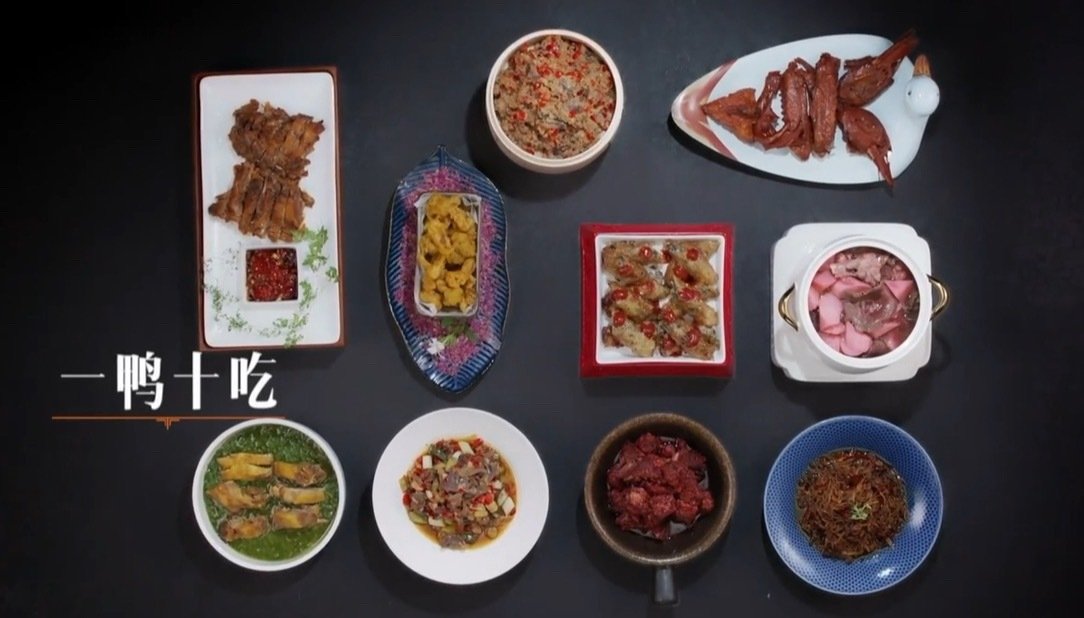
Chef Zhan from "Uncle Seeking True Taste" brought his own specialty "One Duck, Ten Ways to Eat It"
Zhang Yong, the head of Xin Rong Ji, repeatedly praised his extensive cooking skills and comprehensive understanding of ingredients. Although the results are still to be determined, he was able to make the cold judges salivate, and his actions proved everything.
In general, "One Meal to Become a God" has a strong sense of group portrait and focuses solely on the cooking process, trying to avoid the boring script output of variety shows. The program even intends to tear apart everyone's stereotypes about gender bias in the kitchen.
The appearance of the female chefs was quite convincing.
Wei Guirong, the "London Noodle Queen", taught foreigners how to use chopsticks with a bowl of oil-splashed noodles;
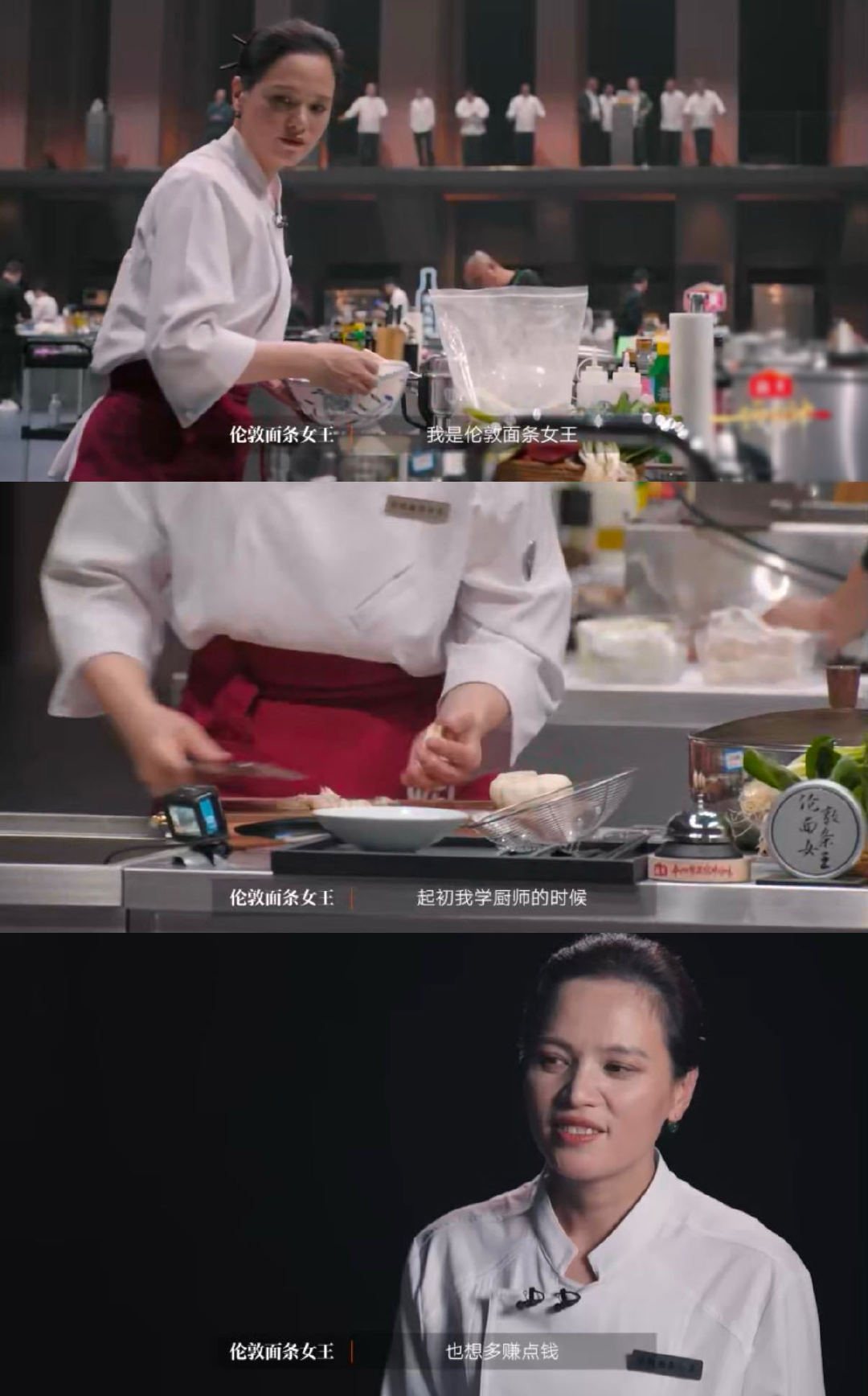
Wei Guirong, the "London Noodle Queen"
The rose syrup goose liver sausage and beef Wellington fillet from "Chemistry Department Chef" Zheng Zixin's recipe was impeccable in shape and color, and the sausage casing was meticulously processed, winning over the judges with her real professionalism.

The Wellington beef fillet from "Chemistry Department Chef" Zheng Zixin is impeccable in both shape and color.
There are also women who are dedicated to inheriting and promoting local food culture, such as the intangible cultural heritage inheritors Tacheng Yangpo and Minnan Chef. Nicholas Tse's words "Chefs are not only men, women can also be strong" have expressed the voices of many female chefs? In particular, "I am not the Queen" entered the game with a slow and meticulous soy sauce soaked chicken, and her inspirational story is also quite touching.
As we all know, the sentence that best represents the documentary "A Bite of China" is: high-end ingredients often only require the simplest cooking methods.
In the Dream of the Red Chamber, Granny Liu's confusion when she first tasted "eggplant fish" is just like the trance that audiences feel today when faced with overly refined dishes on the table - the dish made with a dozen chickens stewed with eggplant, which did not taste the slightest bit of eggplant flavor, has become an "refined model" of wealthy banquets.
When food competitions move towards high-end, it is like an arms race for food ingredients: A5 wagyu, Almas caviar, and French foie gras become standard, while pork and tofu commonly found in the market can only become invisible side dishes; techniques such as liquid nitrogen smoking, molecular spheroidization, and centrifugal clarification appear frequently. In order to surprise, the means of cooking have gradually deviated from the original intention. On the stage of cooking competitions, it is natural to show off your skills. Exquisiteness is not the original sin, but the advancement of cooking is ultimately "subtraction" rather than "addition". Just like Stephen Chow finally realized in the movie "The God of Cookery", the true chef god is never to compare whose seasoning is more expensive, but to compare who understands better - the ultimate meaning of food, so that every bite of taste is accompanied by the simplest love for life.
I hope that in the next few episodes, there will be a theme that allows ordinary food to take center stage, and also allow for a competition on what we can “afford to eat.”
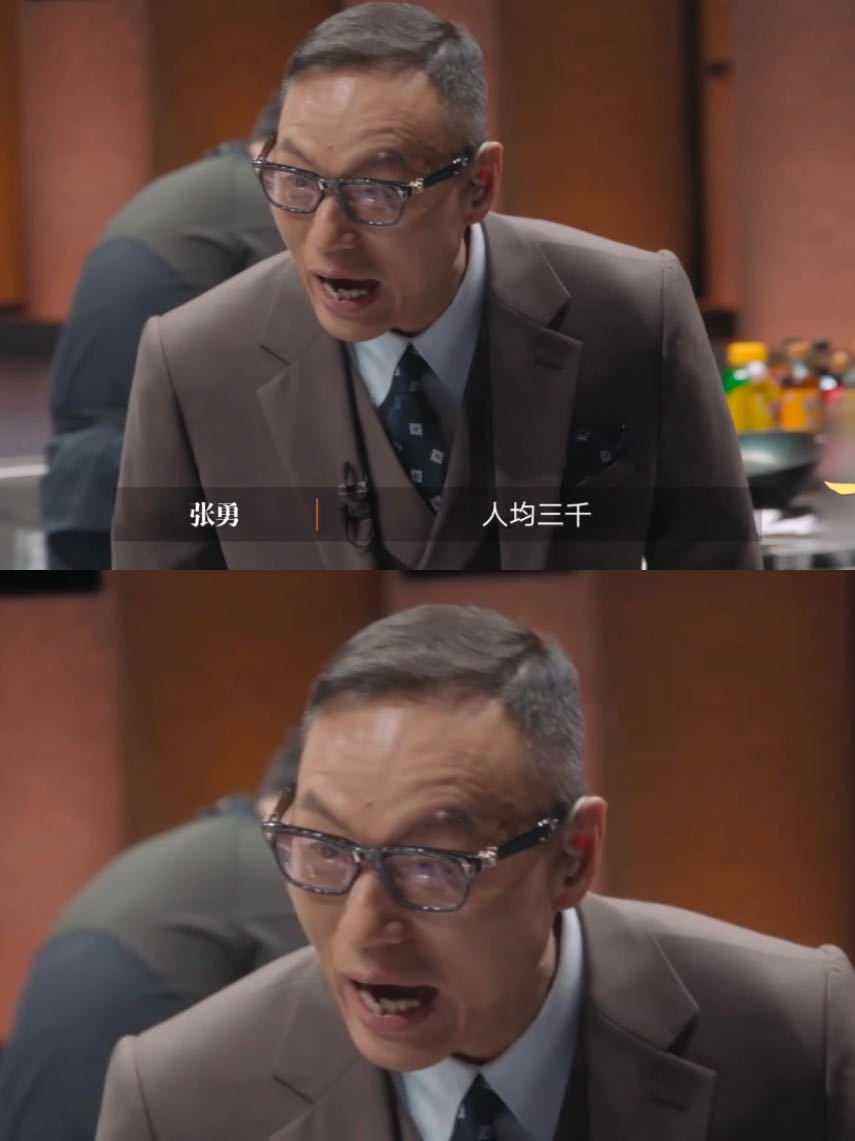
Judge Zhang Yong


